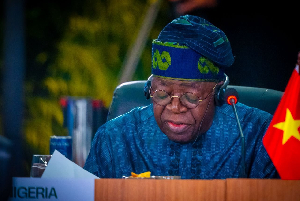The Federal Government, through the Federal Accounts Allocation Committee, has deducted a total of N256.52bn from revenue allocations to fund gas infrastructure projects in the first half of 2025, official figures seen by Sunday PUNCH have shown.
This comes amidst the government’s latest plan to review deductions and revenue retention practices.
The deductions, which are made for the Midstream and Downstream Gas Infrastructure Fund, fluctuated significantly month-to-month.
Sunday PUNCH gathered that the projects, spread across the six geopolitical zones of the country form part of efforts to bridge critical infrastructure gaps in the gas value chain.
In 2023, President Bola Tinubu appointed a governing council to lead the Midstream and Downstream Gas Infrastructure Fund.
The Nigerian Midstream and Downstream Petroleum Regulatory Authority manages the MDGIF, while the governing council is chaired by the Minister of State for Petroleum Resources (Gas), Ekperikpe Ekpo, who oversees the fund’s activities.
The aim of the MDGIF includes attracting more than $575bn in investments to develop Nigeria’s gas sector; expanding the midstream and downstream gas infrastructure to create a more robust gas market in Nigeria, among others.
But the fund, originally designed to attract investments and get its money from a small levy on the wholesale price of petroleum products and natural gas sold in the country, now relies on allocations from the government.
A breakdown of the figures analysed from the monthly FAAC report between January and June 2025 revealed that a total of N256.52bn from oil revenue allocations to finance gas infrastructure projects in the first half of 2025, with June recording the sharpest month-on-month rise of 60.38 per cent.
Figures obtained by Sunday PUNCH show that N35.07bn was deducted in January, followed by a 9.24 per cent drop to N31.83bn in February.
In March, allocations surged by 66.49 per cent to N52.99bn before plunging by 44.91 per cent in April to N29.19bn.
However, the government increased deductions by 41.38 per cent in May to N41.27bn, and by a further 60.38 per cent in June to reach N66.18bn, the highest monthly figure in the period.
The lowest monthly release of the period came in April at N29.19bn.
The June spike came on the heels of the Federal Government’s signing of more than N165bn in equity investment agreements with 10 companies to deliver gas processing plants, CNG refuelling stations, and LPG storage facilities nationwide.
The deals are central to Nigeria’s “Decade of Gas” agenda, aimed at boosting domestic gas supply, cutting flaring, and supporting clean energy adoption.
The projects, announced on June 2, include six gas processing plants, two of which will harness flare gas, three compressed natural gas stations, and a bulk liquefied petroleum gas storage facility.
Speaking at the inauguration meeting of the council, Ekpo pointed out that the establishment of the MDGIF came at a critical juncture in Nigeria’s energy landscape, as the country strives for economic diversification and sustainable development.
He said the MDGIF represented not just a financial instrument, but a symbol of the government’s dedication to fostering an environment conducive to private sector participation and international collaboration.
Business News of Sunday, 17 August 2025
Source: www.punchng.com













